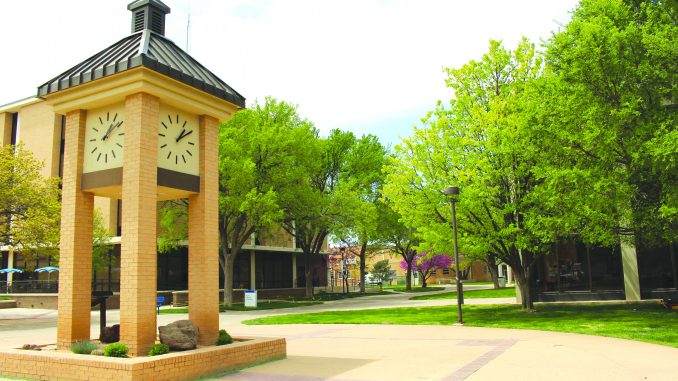
By STEVI BRESHEARS, Editor-in-Chief |
Amarillo College, along with help from architecture firm Parkhill, Smith and Cooper, has developed a ‘master plan’ of projects to improve the AC campuses.
“It was developed as the precursor to the next strategic plan,” AC President Russell Lowery-Hart said. “The master plan gives us economic and employment projections and data. It assesses future needs and with it we can build a new strategic plan and ensure our physical spaces allow us to meet future needs. No Excuses 2020 is our current strategic plan that ends next year.”
The master plan addresses issues based on current and future enrollment and the things needed to serve those students efficiently. Changes such as additional parking, technology upgrades, building upgrades and renovations to ensure Americans with Disabilities Act compliance are all a part of the various projects that make up the master plan.
“One thing led to another, one discussion led to another,” Mark White, the college’s executive vice president, said. “The board of regents has a long-term vision about things and determined that we should simply have an entire master plan done instead of just looking at one thing, so it became one large, comprehensive project.”
After about eight months of planning, the board came down to a figure of approximately $110-120 million to finish all the projects that need to be completed. White said that there are three options for funding — charitable contributions, reallocating money within the existing college budget or issuing bonds.
According to White, bonds are “investment vehicles” for investors to purchase. AC would make money by selling the bonds to investors. The college would then repay the investors plus interest, which would be funded by an increase in property taxes.
The regents placed a master plan bond measure on the ballot for the upcoming May 4 election. Amarillo citizens will have the opportunity to vote on the bond, which is set at $89,206 million. If it passes, AC will have the authority to issue bonds for up to $89, 206, but it doesn’t necessarily mean they will and especially not all at once. “It would be done in fairly small increments over a number of years,” White said.
In the event that the bond passes, property owners would see an increase in taxes. In total, the property taxes would increase approximately $40 for every $100,000 in property valuation. Essentially that means if you own a $100,000 home, your taxes would increase $40 over a span of several years.
While passage of the bond would supply a major source of funding for completing the master plan proposals, it isn’t the deciding factor in whether or not all the projects will be completed.
“All of these things, they’re not emergencies,” White said. He explained that if the bond doesn’t pass, it will take longer to complete all the upgrades included in the master plan.
“At the end of the day, AC wants to do what the community wants,” he said. “After all, it’s their college.”

Leave a Reply